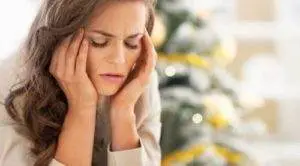Acupuncture is the best way to treat pain without negative side effects. TCM has been used for thousands of years not only to alleviate pain, but to actively work to treat the root cause of the pain.

No one wants to suffer through pain, yet it is an integral part of life. Pain is the body’s way of communicating that something is wrong. From the perspective of medical experts, pain is defined as a sensory experience associated with damage of tissues. It can vary widely in intensity, and can be felt in a very specific area, or in a more diffuse way.
The pain may be due to an injury, or an illness, or something even more elusive. Covering up the pain with medications is only a temporary and very partial solution. Over the counter pain relievers work by blocking specific chemicals that damaged cells release as signals to the brain. They can block the transmission of the signals, but they don’t do anything to fix what’s causing the pain. It may lead someone to keep injuring herself or to inadequately treat the underlying illness. And pain medications can create many side effects, such as nausea, constipation, fuzzy-headedness. Over time, people build up a tolerance, so they have to take more to get the same effect.
How Acupuncture Treats Pain
TCM is a complex multi-disciplined approach to healing. An acupuncture practitioner uses various modalities to work with each patient’s individual symptoms and overall health condition.
In the TCM view, qi (vital energy) flows through the body along pathways called meridians. Pain is usually a sign that there is a blockage of qi in the body.
When treating a pain condition, the TCM practitioner is working on several levels. She can simultaneously use points to provide immediate pain relief while also freeing up the blockage and touching on whatever it was that started causing the blockage in the first place. Personalized herbal formulations can also address the deeper part of the issue, restoring a baseline of good health.
TCM treats the whole person, not only localized physical symptoms. Pain can have its origins in some shock or emotional trauma a person went through, or because of dietary habits or exposure to some toxicity, either chemical or energetic. An experienced practitioner will ask lots of questions until the underlying issues are revealed.
5 Ways Acupuncture Treats Acute Pain Due to Sprained Ankles or Other Injuries
When a person first sustains an injury, such as a sprained ankle, shoulder strain, or even broken bone, it can be very beneficial to seek treatment by acupuncture right away. Acupuncture treats sprained ankles, strains and other injuries by:

- Stopping internal bleeding
- Reducing swelling and inflammation
- Stimulating the production and release of endorphins
- Block neural signals of pain
- Maximizing the flow of blood and qi to the area
Acupuncture and TCM for Chronic Pain Management
Many millions of people are affected by chronic pain conditions and have not been able to find relief from the care they are receiving, whether it be strong pain medications that carry side effects or surgeries that have not resolved their pain. Acupuncture has been shown to be an effective modality for reducing chronic pain.
Shoulder pain, neck pain, heel pain, back pain, arthritis pain and chronic headache pain can all be treated by acupuncture with significant improvements demonstrated over time.
Acupuncture and TCM for Pain and Depression
Often pain and depression go hand in hand. Pain can arise from a traumatic experience that creates a double burden of mental and physical unease. Long periods of intense stress can put a stranglehold on the flow of qi through the meridians, further disrupting communications between the mind and body. Autoimmune disorders like fibromyalgia and lupus can cause chronic pain. In any case, pain that is severe and long-lasting can cause a person to feel helpless and hopeless. Acupuncture has been shown to help treat both the pain and the depression simultaneously.
Acupuncture for Cancer Treatment Pain and Symptoms
Patients fighting cancer often face pain both from the tissue damage caused by the cancer itself and pain that results from the various types of cancer treatment. More than half of cancer patients struggle with significant pain, and many of them go undertreated. Pain medications often do not do enough to ease the pain, and they carry side effects that further weaken the person who is fighting the sickness. Acupuncture can alleviate pain and boost the immune system, while also helping with related symptoms like nausea, neuropathy, and constipation.
20 Types of Pain Treated by Acupuncture and TCM
Acupuncture can provide pain relief for many pain conditions, including:

- Musculoskeletal pains of all kinds
- Sports injuries
- Sprained joints
- Neck pain
- Back pain
- Tension headaches
- Migraines
- Tennis elbow
- Knee pain
- Arthritis
- Cancer
- Body aches
- Fibromyalgia
- Stomach pain
- Liver disease
- Pancreatic disease
- Gall bladder stones
- Kidney stones
- Menstrual pain
- Endometriosis
If you or someone you love is suffering from pain, please call us right away to schedule an initial consultation. There is something you can do, and that is seek treatment from a highly qualified TCM professional.








